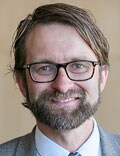Except that only 10% get fully recovered so all you are doing is predicting failure to recover. Will you talk to survivors and honestly ask them what they want. 100% recovery is the only goal in stroke. Prediction crapola is worthless until you have protocols delivering 100% recovery.
Innovative Technology Accurately Predicts Stroke Recovery
A new technology that maps the wiring of the brain can predict the course of recovery in patients who have suffered stroke, enabling a more individualized approach to rehabilitation therapy.
The technology uses "connectomes" that are generated by analyzing multiple images taken from MRI and form a "blueprint" of how a brain's neurons connect to each other.
New research analyzing connectomes with the help of machine learning accurately predicts the recovery potential of patients who have suffered a recent stroke.
"This is a very exciting advance. We are astonished that the predictive values were so good," senior study author Friedhelm Hummel, MD, told Medscape Medical News. "It is a major advantage to be able to look at the whole brain," he added.
The study was published online July 8 in the journal Brain.
A Whole Brain Approach
Hummel, who is chair of clinical neuroengineering at the Swiss Federal Institute of Technology, Lausanne, Switzerland, said this new technology should help to optimize and personalize rehabilitation treatment strategies in stroke care.
"The acute treatment of stroke is clear, but then comes the whole rehabilitation process which can go on for many months, years, or indeed the rest of a patient's life," he noted.
Around two thirds of patients show a natural recovery and regain about 70% of the deficit after stroke, whereas around one third do not achieve such a natural recovery, Hummel explained.
"It is difficult to predict in the early days and weeks after a stroke which patients are going to make a natural recovery and which ones aren't. This is particularly hard in patients who are very severely impaired immediately after the stroke."

Dr Friedhelm Hummel
He pointed out that the brain works like a network. "If a stroke happens it affects not only the one area where it occurred but there is also a 'network effect.' If we take this into account, we have a better picture of what is happening in the brain. We are not just looking a one part of the brain, but the whole brain network. We wanted to know if this gives us more information on patient recovery."
Connectomics is a new area analyzing both functional and structural connections in the brain. For this study, the researchers focused on structural connections.
The investigators analyzed connectomes from 92 patients 2 weeks after stroke, tracking connectome changes up to 3 months later while also assessing motor impairment using the Fugl-Meyer Upper Extremity (FMUE) scale.
Personalized Recovery
The connectome information was analyzed by a machine-learning model known as a "support-vector machine", which was programmed to distinguish between patients who make a natural recovery from those who don't achieve a natural recovery based on their whole-brain structural connectomes.
No comments:
Post a Comment